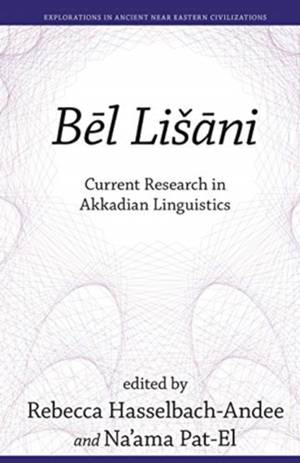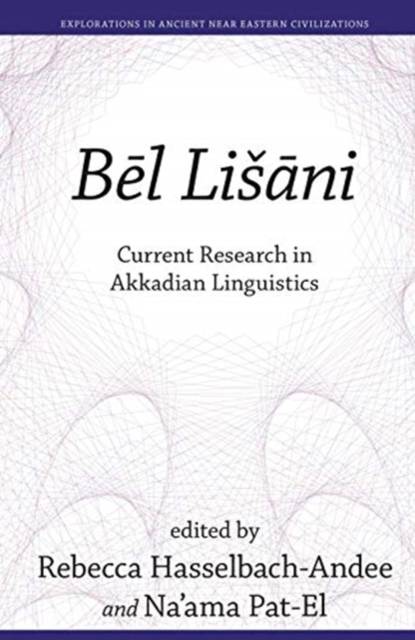
- Afhalen na 1 uur in een winkel met voorraad
- Gratis thuislevering in België vanaf € 30
- Ruim aanbod met 7 miljoen producten
- Afhalen na 1 uur in een winkel met voorraad
- Gratis thuislevering in België vanaf € 30
- Ruim aanbod met 7 miljoen producten
Bēl Lišāni
Current Research in Akkadian Linguistics
Omschrijving
Akkadian, a Semitic language attested in writing from 2600 BCE until the first century CE, was the language of Mesopotamia for nearly three millennia. This volume examines the language from a comparative and historical linguistic perspective.
Inspired by the work of renowned linguist John Huehnergard and featuring contributions from top scholars in the field, Bēl Lisāni showcases the latest research on Akkadian linguistics. Chapters focus on a wide range of topics, including lexicon, morphology, word order, syntax, verbal semantics, and subgrouping. Building upon Huehnergard's pioneering studies focused on the identification of Proto-Akkadian features, the contributors explore linguistic innovations in the language from historical and comparative perspectives. In doing so, they open the way for further etymological, dialectical, and lexical research into Akkadian.
An important update on and synthesis of the research in Akkadian linguistics, this volume will be welcomed by Semitists, Akkadian language specialists, and scholars and students interested in historical linguistics.
In addition to the editors, the contributors to this volume include Paul-Alain Beaulieu, Øyvind Bjøru, Maksim Kalinin, N. J. C. Kouwenberg, Sergey Loesov, Jacob J. de Ridder, Ambjörn Sjörs, Michael P. Streck, and Juan-Pablo Vita.
Specificaties
Betrokkenen
- Uitgeverij:
Inhoud
- Aantal bladzijden:
- 276
- Taal:
- Engels
- Reeks:
- Reeksnummer:
- nr. 8
Eigenschappen
- Productcode (EAN):
- 9781646021352
- Verschijningsdatum:
- 25/10/2021
- Uitvoering:
- Hardcover
- Formaat:
- Genaaid
- Afmetingen:
- 152 mm x 229 mm
- Gewicht:
- 576 g

Alleen bij Standaard Boekhandel
Beoordelingen
We publiceren alleen reviews die voldoen aan de voorwaarden voor reviews. Bekijk onze voorwaarden voor reviews.










